A Tight Connection
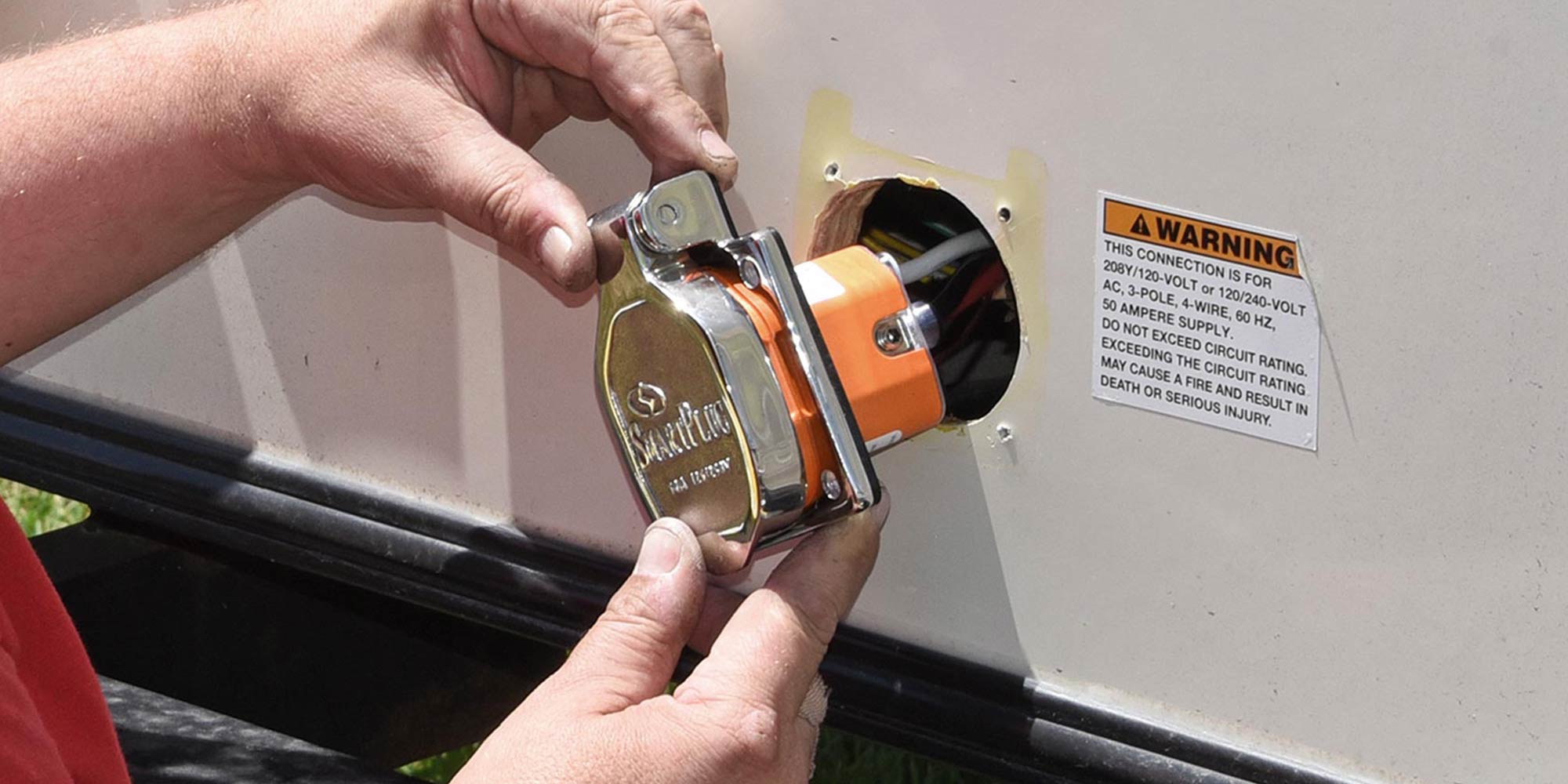
As it turned out, the plug on the motorhome’s cordset melted and was smoking. No flames, fortunately, but the burnt and discolored plug was an uncomfortable sight. The cause of this failure, which I have seen many times as a technician and again on another personal RV, was resistive heating.
Moisture adds to the problem. Over time, corrosion can help amplify the terminal gap, increasing the arcing and heating. This is especially common, for example, in the connection between the RV cordset and extension cord, pigtail, or plug-in surge protector where the connection is exposed to rain. However, it can also happen to an unsealed exterior RV connection.
Marine environments are far harsher than those experienced by RVs mainly due to salt water exposure. Recreational boaters frequently had to deal with power-connection issues like those mentioned above, which led to the invention of the SmartPlug. The Seattle-based company soon realized RVers can suffer from the same dilemmas and began marketing to the RV community.
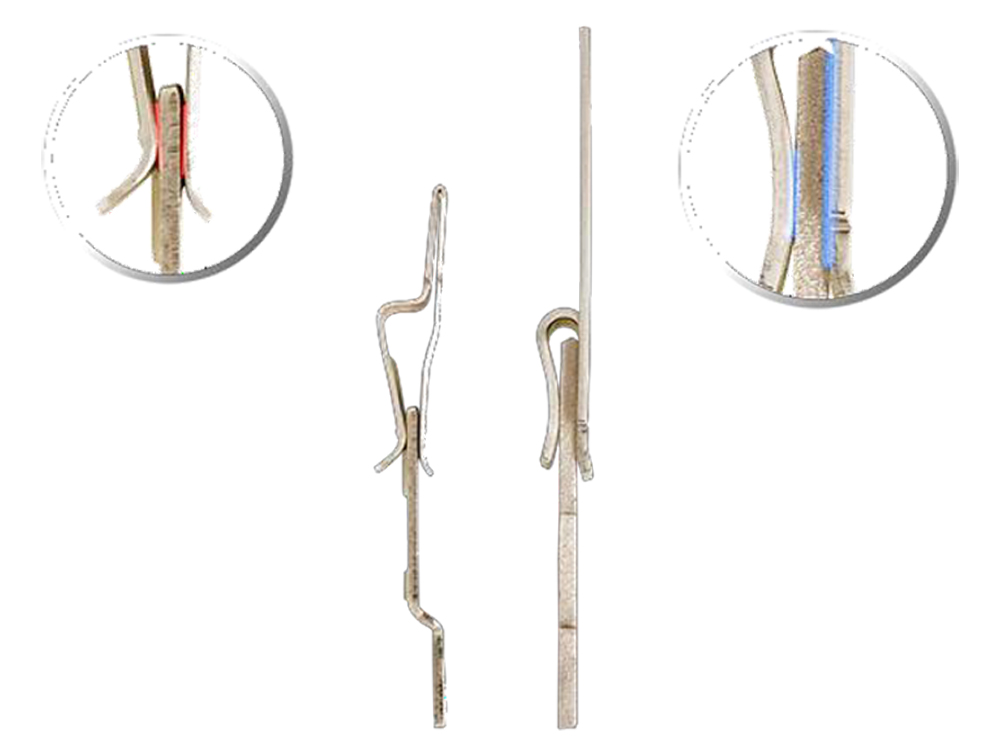
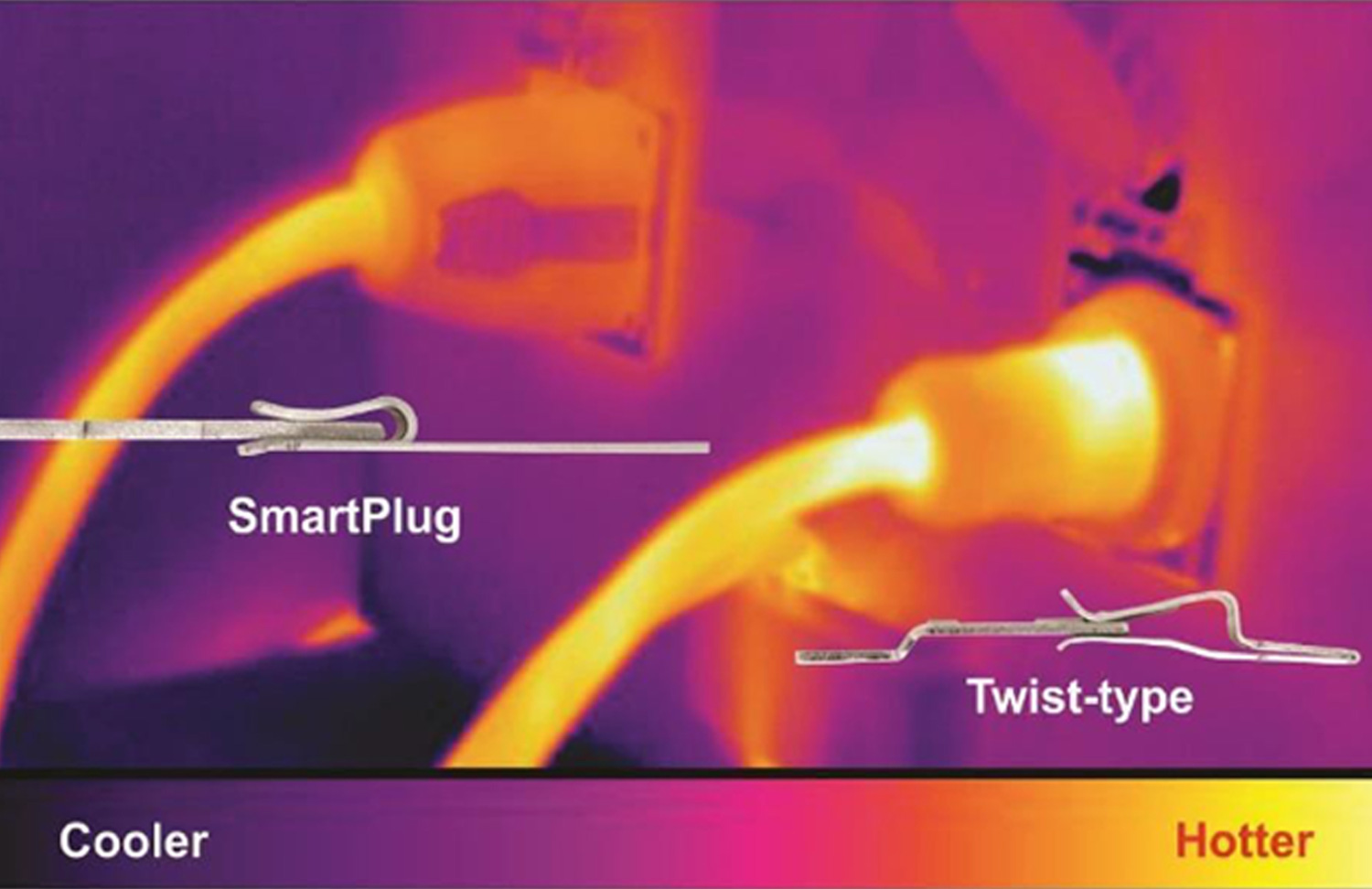
Second, SmartPlug uses much heavier-grade pins that are also larger, providing a tighter connection. This upgrade by itself can reduce or even eliminate resistive heating.
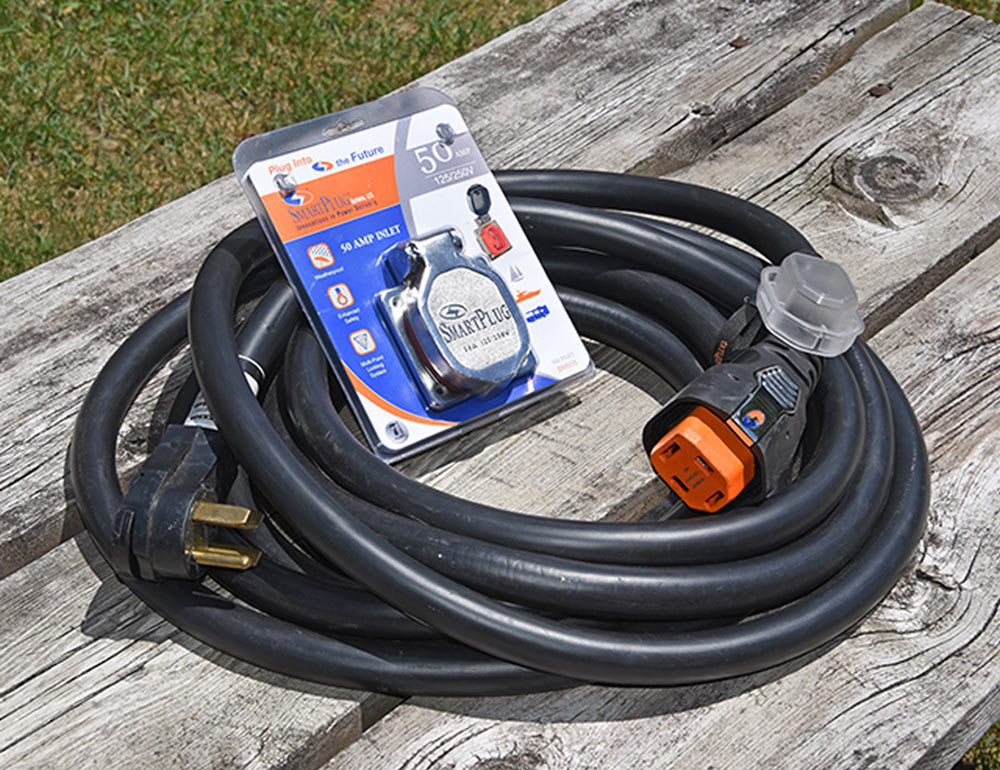
Fourth, the latest version also includes a second LED on the cordset plug that indicates shorepower polarity — which helps indicate whether you have a safe connection.
Kits start under $150 and go up from there. Expect to spend $400+ for the 50-amp cable and hardware kit in chrome. We installed a chrome SmartPlug 50-amp system on a 2015 Montana fifth-wheel, replacing a legacy twist-lock which, as it turned out, was broken inside from an over-torqued set screw.
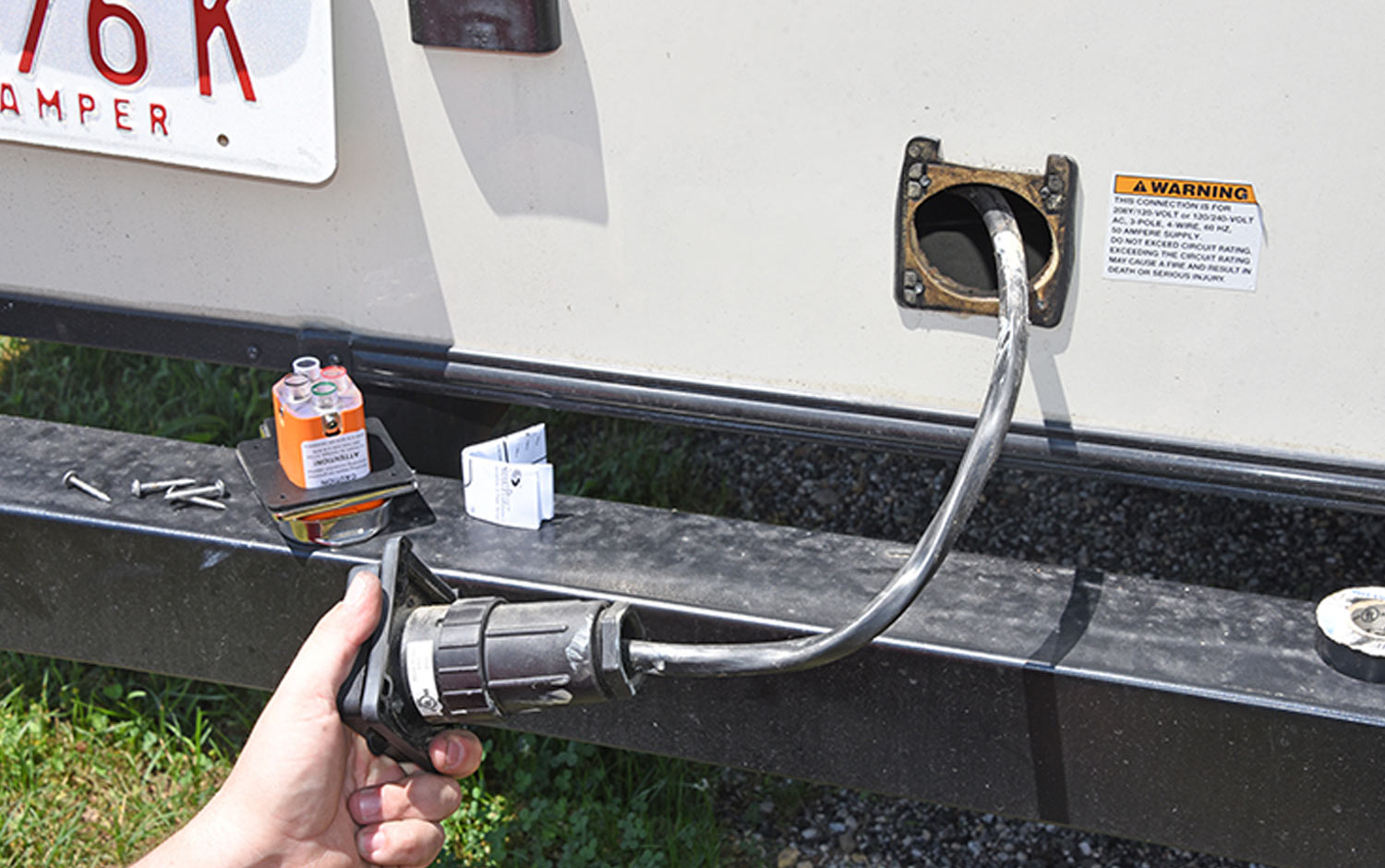
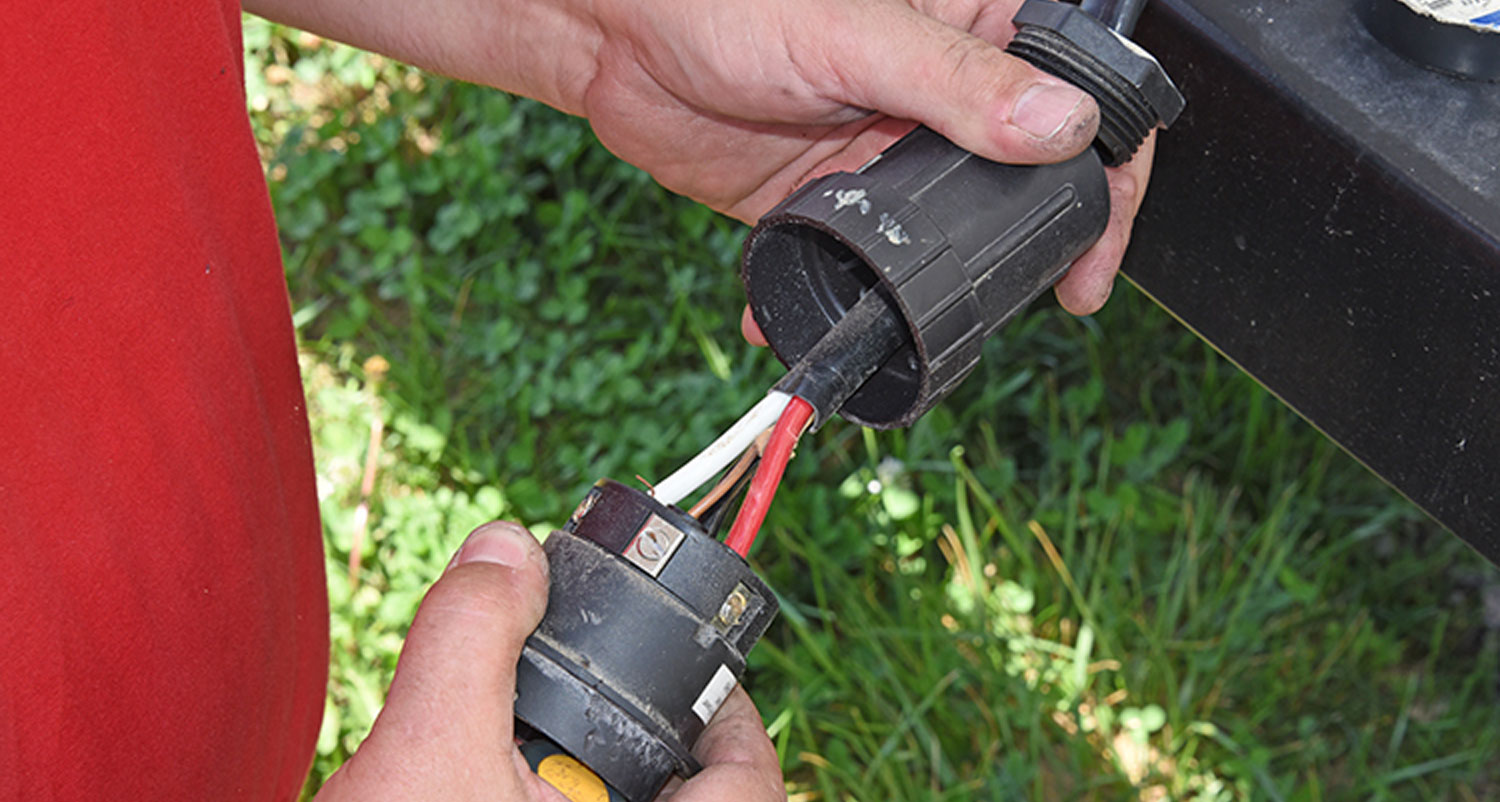
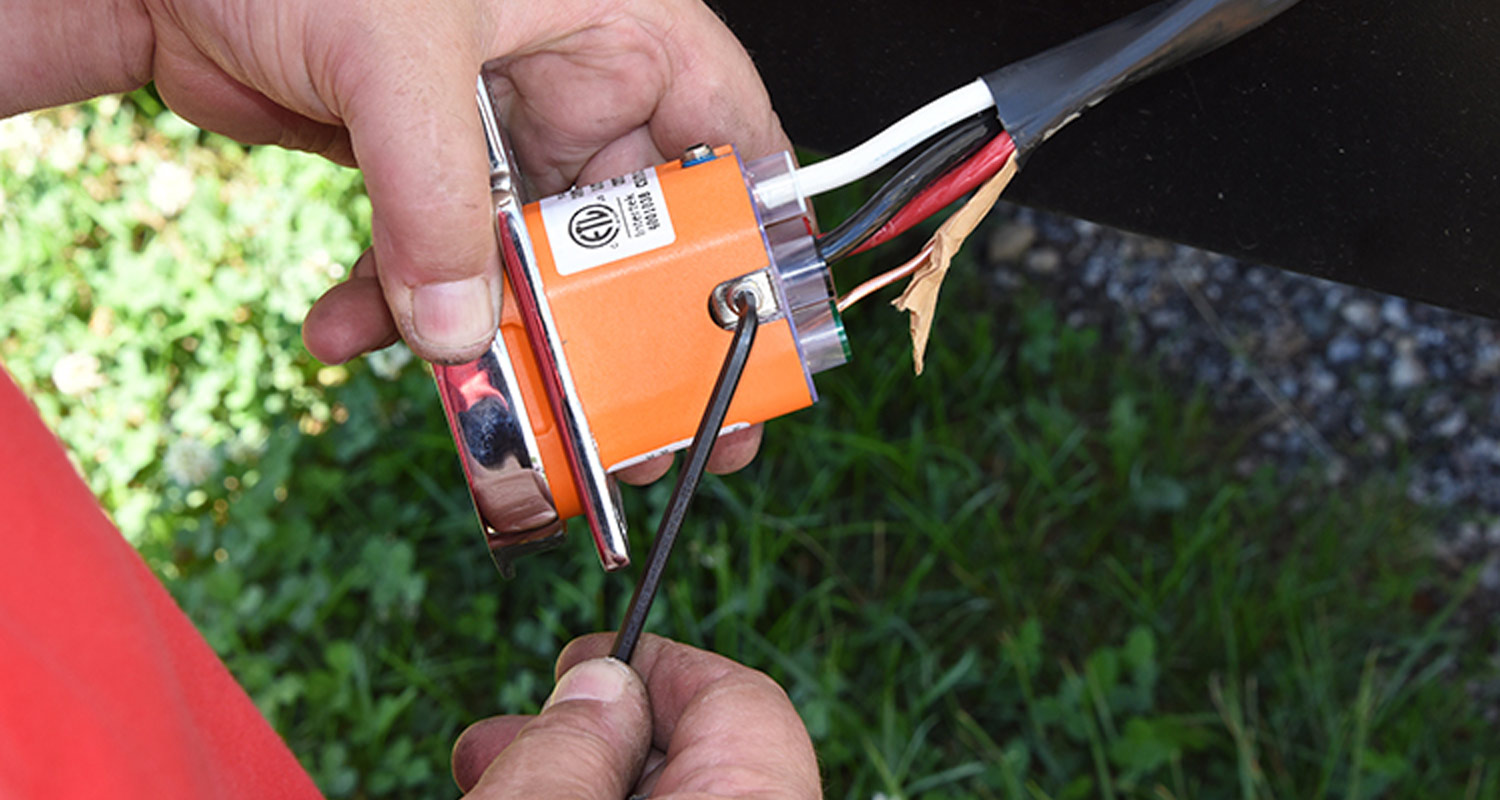
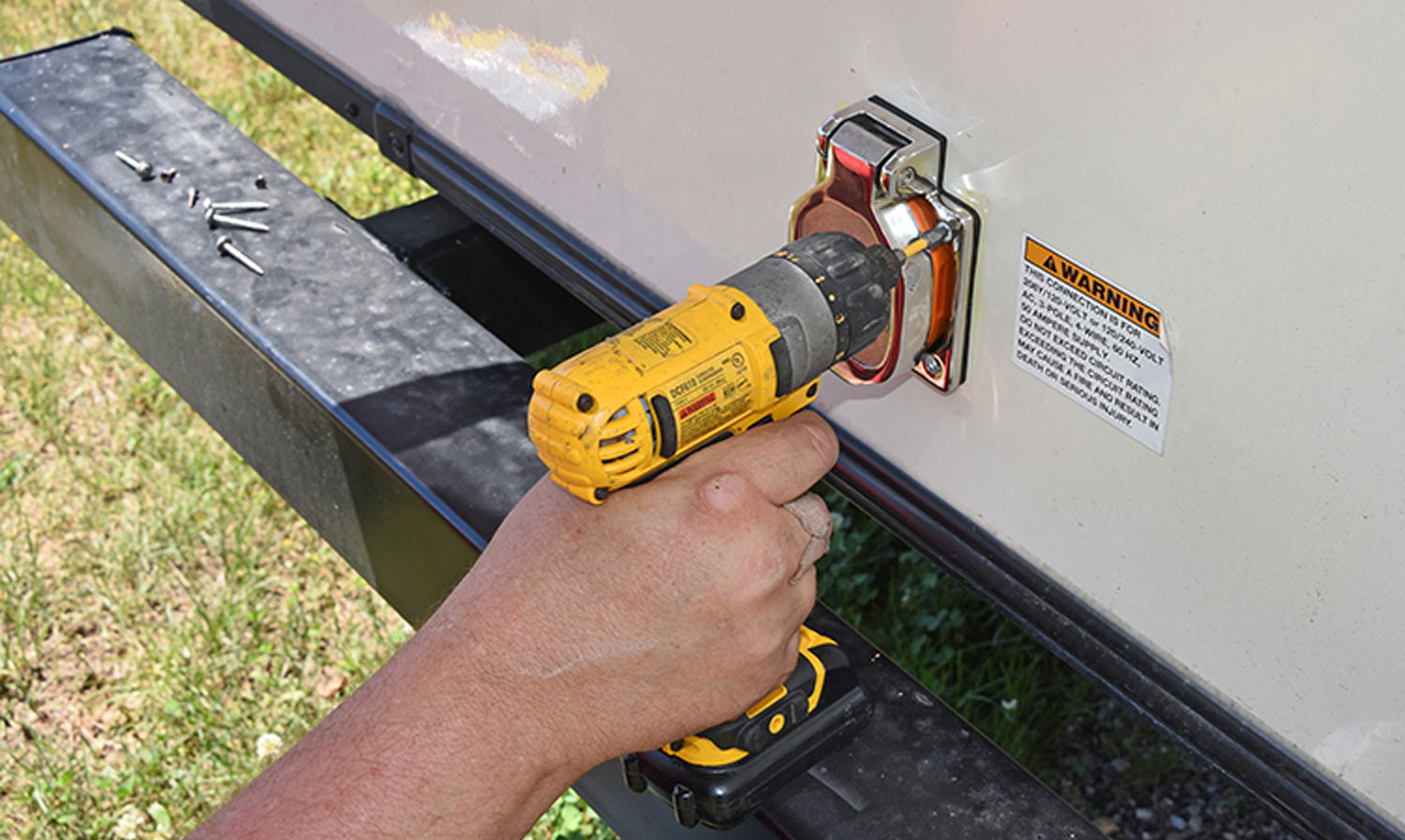
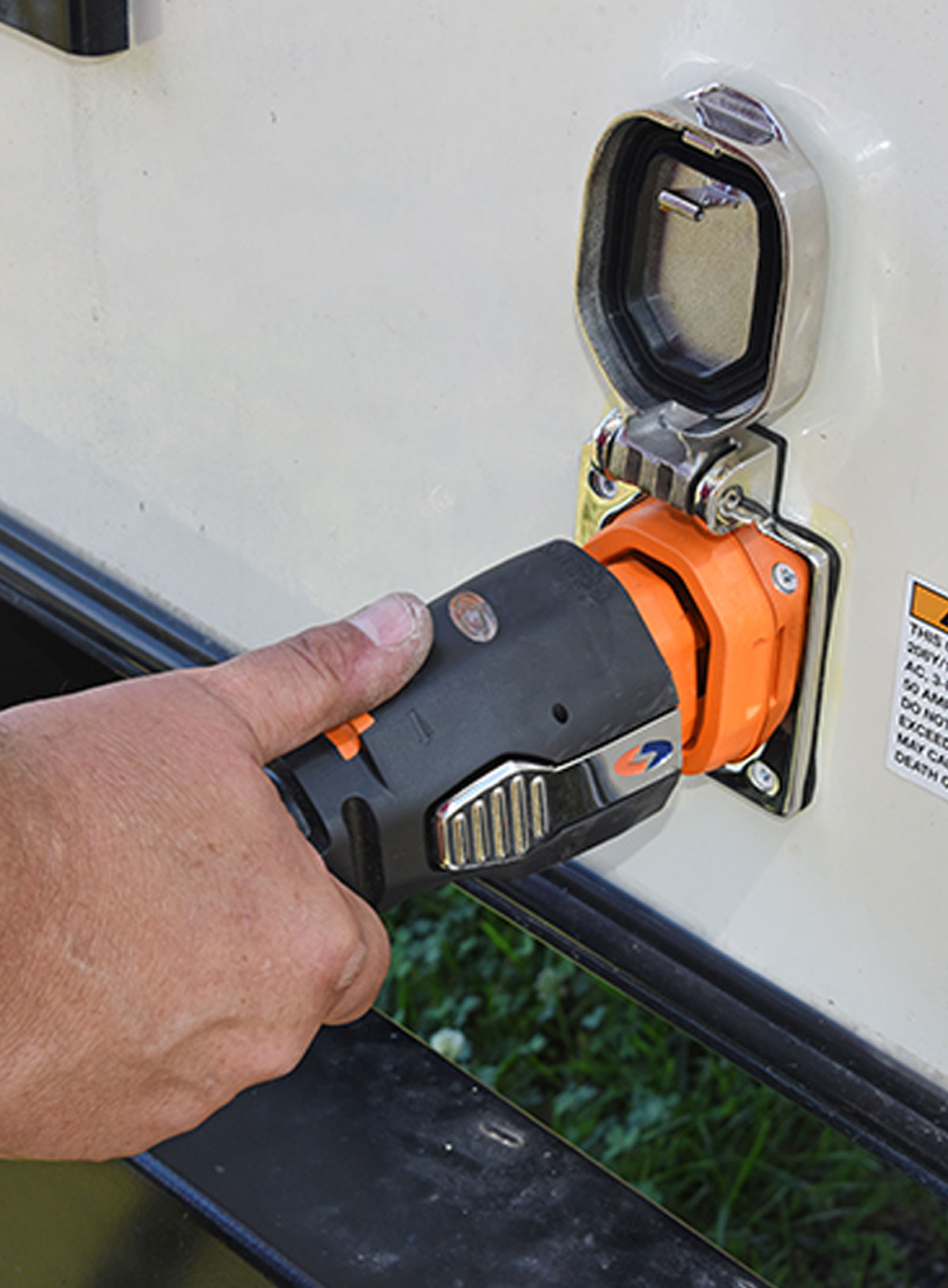
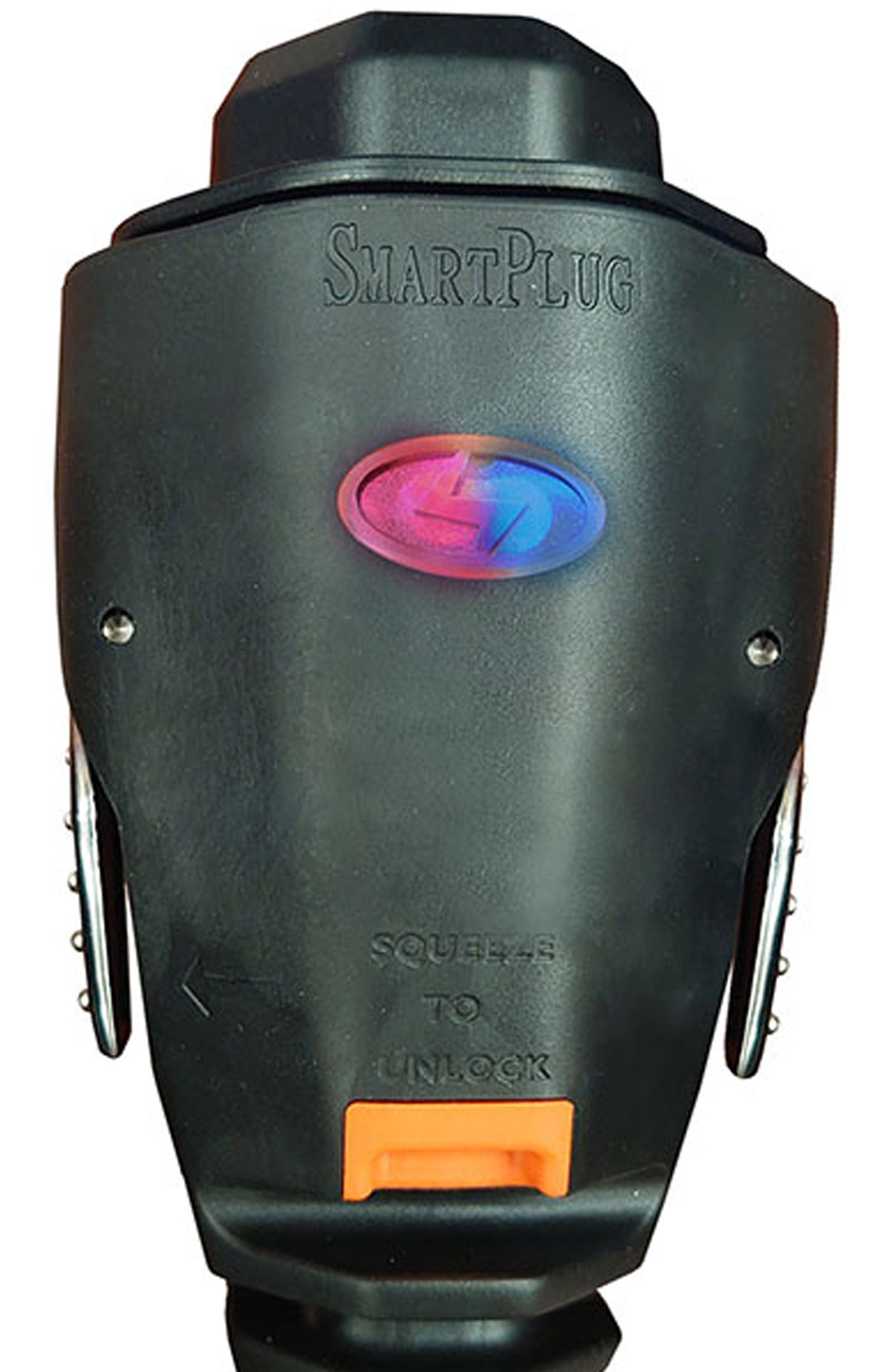
Smart Plug Systems
(206) 285-2990
www.smartplug.com
https://amzn.to/2Vl1rzw
Already a Subscriber? Click here for Access to the Full Issues.

